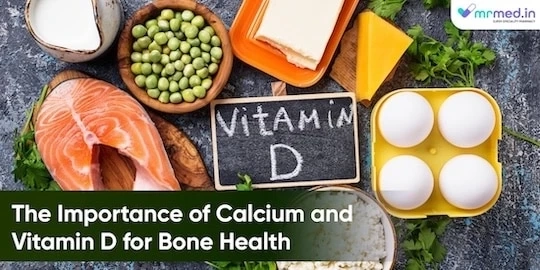Maintaining optimal bone health is crucial for overall well-being, and two key nutrients play a pivotal role in this process: calcium and vitamin D. These essential nutrients work together to ensure strong and healthy bones, preventing conditions such as osteoporosis and fractures. Understanding their importance and how to incorporate them into your daily routine can significantly impact your bone health.
What is the role of calcium in bone health?
Calcium is a vital mineral for building and maintaining strong bones and teeth. Approximately 99% of the body\'s calcium is stored in the bones and teeth, providing structure and strength. The remaining 1% is essential for other bodily functions, such as muscle contraction, blood clotting, and nerve transmission.
Calcium citrate is a highly absorbable form of calcium, making it an excellent choice for individuals who need to supplement their calcium intake. Unlike some other forms of calcium, calcium citrate does not require stomach acid for absorption, which means it can be taken with or without food. This makes it a convenient option for many people, including those with reduced stomach acid production.
Can you reverse calcium deficiency?
Calcium deficiency can lead to weakened bones and an increased risk of fractures. Symptoms of calcium deficiency include muscle cramps, brittle nails, and difficulty sleeping. To prevent calcium deficiency, it is essential to consume adequate amounts of calcium-rich foods, such as dairy products, leafy green vegetables, and fortified foods.
What is vitamin D\'s specific role in bone health?
Vitamin D is essential for calcium absorption in the gut. Without sufficient vitamin D, the body cannot absorb enough calcium, regardless of how much is consumed through diet or supplements. This makes vitamin D a crucial nutrient for bone health.
Vitamin D3: The Preferred Form
Vitamin D3 (cholecalciferol) is the form of vitamin D that the body most effectively uses. It is produced in the skin in response to sunlight and can also be obtained through certain foods and supplements. Vitamin D3 helps maintain proper calcium levels in the blood, promoting healthy bone formation and remodelling.
What is the fastest way to cure vitamin D deficiency?
Vitamin D deficiency can lead to a range of health issues, including weakened bones, muscle weakness, and an increased risk of fractures. Individuals at risk of vitamin D deficiency include those with limited sun exposure, older adults, and individuals with darker skin. To prevent deficiency, it is important to spend time in the sun, consume vitamin D-rich foods like fatty fish and fortified milk, and consider taking supplements if necessary.
How do you beat bone-related diseases?
1. Osteoporosis Prevention
Osteoporosis is a condition characterised by weak and brittle bones, which make them more prone to fractures. Ensuring adequate calcium and vitamin D intake is a critical component of osteoporosis prevention. These nutrients help maintain bone density and strength, reducing the risk of fractures.
2. Managing Bone Health in Older Adults
As we age, the body\'s ability to absorb calcium and produce vitamin D decreases, making older adults more susceptible to bone-related conditions. Older adults must monitor their calcium and vitamin D intake, either through diet, supplements, or a combination of both, to maintain bone health and reduce the risk of falls and fractures.
Supplements like Cireta Tablet, which contains Calcium Citrate and Vitamin D, can be helpful for individuals who struggle to meet their needs through diet alone.
3. Calcium Requirements
The recommended daily intake of calcium varies by age and gender. For most adults, the recommended amount is 1,000 milligrams per day, increasing to 1,200 milligrams for women over 50 and men over 70. Good dietary sources of calcium include dairy products like milk, yogurt, and cheese, leafy green vegetables like kale and, broccoli, almonds, and fortified foods like orange juice and cereals.
4. Balanced Diet
Eating a balanced diet rich in calcium and vitamin D is fundamental for maintaining bone health. By incorporating a variety of foods that provide these nutrients, you are making valuable choices that ensure you meet your daily requirements and contribute to your overall well-being.
5. Regular Exercise
Weight-bearing exercises, such as walking, jogging, and strength training, are essential for maintaining bone density and strength. Regular physical activity helps stimulate bone formation and reduce the risk of osteoporosis.
6. Sun Exposure
Spending time outdoors in the sunlight helps your body produce vitamin D. Aim for about 15-30 minutes of sun exposure several times a week, depending on your skin type and location.
Conclusion
It\'s important to note that excessive intake of calcium and vitamin D can lead to health issues, such as kidney stones and hypercalcemia. Therefore, it\'s crucial to follow the recommended daily allowances and consult a healthcare professional before starting any new supplements. Adequate calcium and vitamin D intake is essential for maintaining strong and healthy bones. Calcium citrate is a highly absorbable form of calcium that can help prevent calcium deficiency. By incorporating these nutrients into your daily routine through diet, supplements, and lifestyle changes, you can significantly improve your bone health and reduce the risk of bone-related conditions.



